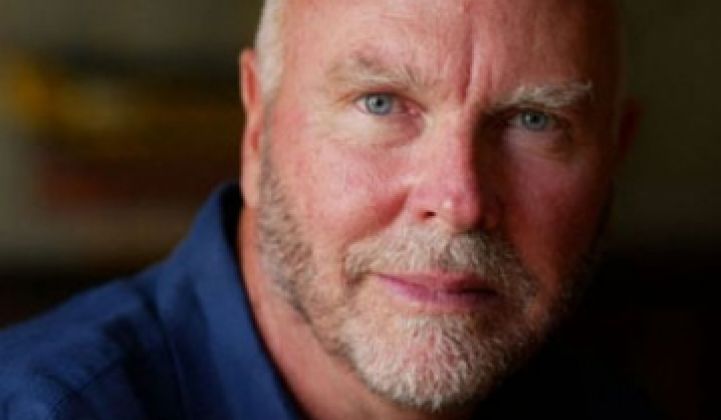By the time they are done, J. Craig Venter of Synthetic Genomics and KR Sridhar of Bloom Energy will have raised more than a billion dollars of venture investment between the two of them. Both of these men are world-class entrepreneurs with world-class investor backing.
They spoke at the Wall Street Journal ECO:nomics event last week. The men are in very different markets and deal with very different sciences. But both are both taking on enormous technical and societal challenges and huge markets while armed with big war chests -- and big egos.
Craig Venter is a visionary who led the effort to sequence the human genome and now he's working on an equally world-changing project: Using algae to go directly from CO2 to hydrocarbons.
In July of last year, Synthetic Genomics announced a $300 million agreement with Exxon to research and develop next generation biofuels using photosynthetic algae. That investment will occur over a number of years -- but that's still a lot of cash. It's more than the total amount of venture capital invested in algae startups since 2005. A drop in the bucket for Exxon but still, big money.
Here's what Venter had to say: "We are at the early stages of seeing what biology can do."
Venter has come up an idea to trick algae into pumping more lipids out. He also claims to have "engineered algae to continuously pump out hydrocarbons," which eliminates much of the cost and energy-intensity of conventional algae oil farming. If that can be done, economically and at scale -- it is absolutely disruptive.
Venter understands the challenge confronting him (and every other algae oil aspirant), saying, "The real bugaboo is scale." Exxon is ready to invest $600 million but "the next phase will require billions."
Venter speaks in a matter-of-fact manner about his activities but beneath that calm tone are mind-bending ideas straight out of science-fiction novels. Venter has already created the first cell with a synthetic DNA gene. If not exactly creating life, Venter is bending the genetic code to do his bidding. He said that he is "going from the four-letter genetic code of A, C, G and T to the binary codes of ones and zeros."
He is "amassing a genetic database...continually learning to write the genetic code" and "treating the genetic code as a raw material." By "changing the DNA software in the cell, the cell converts to a new species." In Venter's words, "The concept of life is changing." He's looking to "design a new algae from scratch with two to three times more efficiency."
Venter is still determining what types of algae to use and whether it is more efficient to grow them in open ponds or in closed containers called bioreactors -- and that's telling. If these are still questions at Synthetic Genomics and Exxon (i.e., how to grow the algae and which species or strain to use), then these firms have betrayed that we are still very early in the research portion of the program; we are not yet at the development part of the R&D equation.
In Venter's "optimistic" estimation, it will take roughly a decade to get to scale on CO2 to fuel. But "once the proof of concept is done, this will move rapidly."
There remain many problems with algae -- it's not just a matter of tricking the algae to pump more lipids out or to secrete hydrocarbons. There's an entire process chain in algae farming that needs to be optimized -- algae growth, water issues, nutrient issues and more.
But Venter is a man of action and it's not a good bet to wager against him.
Green Kingpins Part 1: KR Sridhar of Bloom Energy
Green Kingpins Part 2: Craig Venter of Synthetic Genomics
Green Kingpins Part 3: John Doerr of KPCB
Green Kingpins Part 4: Vinod Khosla
Green Kingpins Part 5: Paul Holland and the VCs at Foundation Capital



